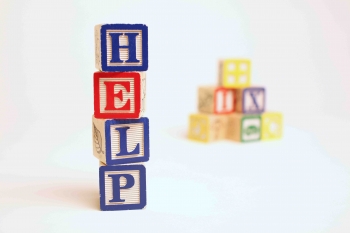Learn about the causes of Childhood Abuse & find a practitioner in Auckland, Hamilton, Bay of Plenty, Wellington, Christchurch, Dunedin to help you overcome Childhood Abuse within New Zealand.
Childhood abuse is the harmful treatment of children through physical, sexual and emotional abuse or neglect. The majority of child abuse is from the parent(s) or close relatives. Childhood abuse perpetrators are also commonly found in child caring environments such as schools, churches and children's homes. Children suffering abuse can develop psychological problems that affect them throughout their lifetime. Treatment is typically through cognitive behavioural therapy and psychotherapy.
Causes of childhood abuse
 Childhood abuse is most commonly committed by parents or close
relatives however strangers may also abuse children. Childhood abuse is typically triggered by one or more of these three different factors:
parental causes, environmental causes or child problems.
Childhood abuse is most commonly committed by parents or close
relatives however strangers may also abuse children. Childhood abuse is typically triggered by one or more of these three different factors:
parental causes, environmental causes or child problems.
Parental causes
Childhood
abuse is likely to come from the parent when there's a background of
emotional deprivation. Abuse can also be caused after an unwanted
pregnancy or if the child is suffering with a condition such as colic.
Those
parents who live in isolation with no support are more likely to abuse
their children as are parents who were abused themselves during
childhood.
Some parents are unable to distinguish between
discipline and abuse and the result is unacceptable and severe physical
mistreatment of the child.
Environment causes
Some
children experience abuse as a result of the environment they are
raised in. Children living in poverty or in overcrowded accommodation
are more likely to be abused. Relationship problems between mother and
father can result in childhood abuse as can a history of substance
misuse (drink, drugs etc.).
Child problems
Physical
and psychological disabilities can cause childhood abuse particularly
if the child is handicapped or suffers with ADHD. Children who arrive
home from school to an empty house can suffer with abuse as can
children whose parents have unrealistic expectations of them.
Symptoms of childhood abuse
Childhood abuse can present itself in a number of ways such as physical
abuse, sexual abuse, emotional abuse or neglect. Recognising the
following symptoms and signs should alert adults or friends that abuse
may be being carried out although it is not always the case.
Sexual abuse
Diagnosis of childhood abuse
If you suspect a child is being abused it can be extremely difficult to
approach the child and get them to talk. You may need to contact a
charitable organisation such as the NSPCC anonymously to get advice
however in an emergency you should contact the Police or Social
Services immediately.
If a child confides in you they are being abused there are a few steps you can take:
*Source: GoToSee.co.uk
Recent Childhood Abuse Questions